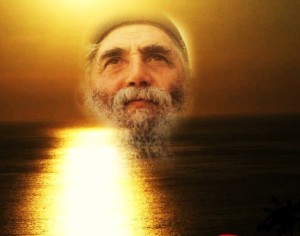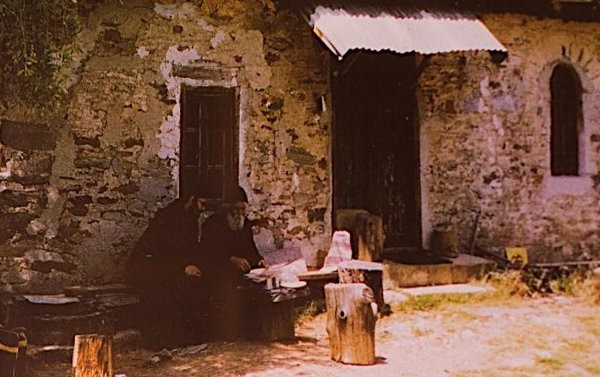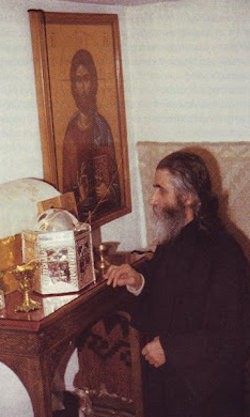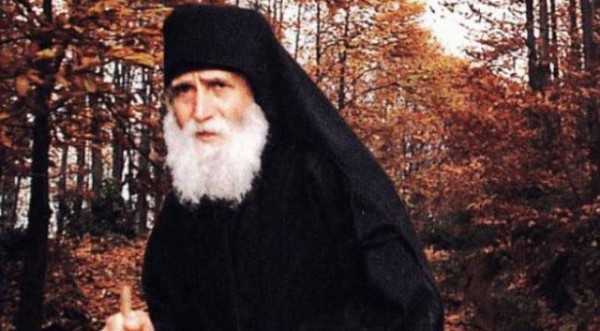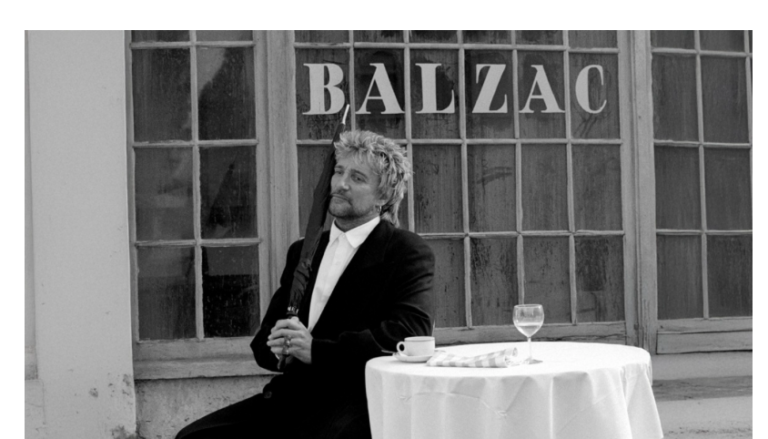Saint Paisios of Mount Athos who was canonized by the Greek Orthodox Patriarchate in 2015 is a well-known monk that is considered to have been the greatest ascetic of the 20th century and was sought for advice by many believers. Hundreds of recordings posted by believers have been circulating on the internet for future generations to be inspired by.
Born Arsenios Eznepidis in Farasa, Cappadocia, in 1924, the monk’s family moved to Konitsa, Epirus, following the population exchange. He led a humble life and grew up to become a carpenter. During the Greek civil war, he served as a radio operator and went to Mount Athos when he completed his service. He soon became famous for his spiritual teachings, many of which are sources of reference for Greek Orthodox Christians today.
Saint Paisios became a controversial figure after making a series of political statements and prophecies, including the prediction of a war with Turkey that would lead to a restoration of Greater Greece that includes Albania, Macedonia and Byzantium (Istanbul). He also spoke of the mass conversion of Turks from Islam to Orthodox Christianity. He warned of cataclysms and apocalyptic times and counseled spiritual preparedness. Such prophecies have led to the comparison of Saint Paisios with Nostradamus.
The monk died in 1994, however there has been great commercial exploitation of his legacy with posthumous books and youtube videos amongst other things. On September 21, 2012, attention was cast on a Facebook page called “Elder Pastitsios the Pastafarian”, satirizing the exploitation of the elder.
Quotes:
* “The lukewarm spirit reigns. There’s no manliness at all! We’ve been spoiled for good! How does God still tolerate us? Today’s generation is the generation of indifference. There are no warriors. The majority are fit only for parades. Godlessness and blasphemy are allowed to appear on television. And the church is silent and doesn’t excommunicate the blasphemers. And they need to be excommunicated. What are they waiting for? Let’s not wait for someone else ot pull the snake out from its hole so that we can live in peace. They’re silent out of indifference. What’s bad is that even people who’ve got something inside have begun to grow cool, saying: “Can I really do anything to change the situation?”
* “A lukewarm clergy lulls the people to sleep, leaves them in their former condition so they won’t be upset. ‘Look,’ they say. ‘By all means don’t say that there’ll be a war or the Second Coming, that one must prepare oneself for death. We must not alarm people!’ And others speak with a false kindness, saying: ‘We mustn’t expose heretics and their delusions, so as to show our love for them.’ Today’s people are water-soluble. There’s no leaven in them. If I avoid upsetting myself to protect my fleshly comfort then I’m indifferent to holiness! Spiritual meekness is one thing, and softness and indifference are quite another. Some say: ‘I’m a Christian and therefore I have to be joyful and calm.’ But they’re not Christian. They’re simply indifferent. And they’re joy is only a worldly joy. He in whom these worldly seeds are present is no spiritual person. A spiritual person consists of nothing but pain. In other words, he’s in pain for what’s going on, he’s in pain for people’s condition. And divine comfort is bestowed upon him for his pain.”
* “Evil lies within us. There is no love in us, so we don’t feel all people to be brothers and are tempted by their sinful ways. But it’s not right when moral failings become known to all.”
* “If we expose someone out of love, with pain in our hearts, then a change will occur in his heart whether he understands us or not. But to expose without love, with partiality, only enrages the object of our exposure. Our hostility strikes against his egoism, producing sparks like flint against steel.”
* “Sweet words and great truths have value when uttered by righteous lips. They take root only in people of good will and clean conscience. Truth, when used without judgment can commit a crime. And he who possesses sincerity without reason commits a twofold evil, first against himself, then against others.”
Ask me anything
Explore related questions
